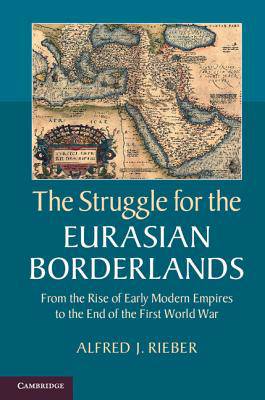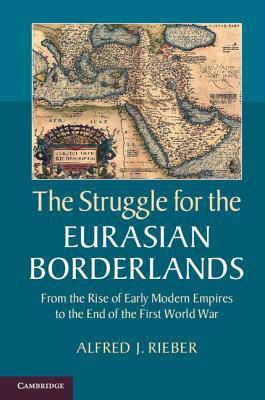
- Afhalen na 1 uur in een winkel met voorraad
- Gratis thuislevering in België vanaf € 30
- Ruim aanbod met 7 miljoen producten
- Afhalen na 1 uur in een winkel met voorraad
- Gratis thuislevering in België vanaf € 30
- Ruim aanbod met 7 miljoen producten
Zoeken
The Struggle for the Eurasian Borderlands
From the Rise of Early Modern Empires to the End of the First World War
Alfred J Rieber
Hardcover | Engels
€ 206,45
+ 412 punten
Uitvoering
Omschrijving
This book explores the Eurasian borderlands as contested 'shatter zones' which have generated some of the world's most significant conflicts. Analyzing the struggles of Habsburg, Russian, Ottoman, Iranian and Qing empires, Alfred J. Rieber surveys the period from the rise of the great multicultural, conquest empires in the late medieval/early modern period to their collapse in the early twentieth century. He charts how these empires expanded along moving, military frontiers, competing with one another in war, diplomacy and cultural practices, while the subjugated peoples of the borderlands strove to maintain their cultures and to defend their autonomy. The gradual and fragmentary adaptation of Western constitutional ideas, military reforms, cultural practices and economic penetration began to undermine these ruling ideologies and institutions, leading to the collapse of all five empires in revolution and war within little more than a decade between 1911 and 1923.
Specificaties
Betrokkenen
- Auteur(s):
- Uitgeverij:
Inhoud
- Aantal bladzijden:
- 652
- Taal:
- Engels
Eigenschappen
- Productcode (EAN):
- 9781107043091
- Verschijningsdatum:
- 20/03/2014
- Uitvoering:
- Hardcover
- Formaat:
- Genaaid
- Afmetingen:
- 150 mm x 229 mm
- Gewicht:
- 1179 g

Alleen bij Standaard Boekhandel
+ 412 punten op je klantenkaart van Standaard Boekhandel
Beoordelingen
We publiceren alleen reviews die voldoen aan de voorwaarden voor reviews. Bekijk onze voorwaarden voor reviews.








